The action seeks the sustainable growth of the Royal Quinoa value chain, with the participation of women and young entrepreneurs in indigenous communities. Sustainability must be achieved by introducing ecological practices that increase yields and reduce production costs, presenting alternatives for value creation in a more competitive and better-priced regenerative agriculture quinoa, and incorporating elements for the efficient use of resources and the circular economy.
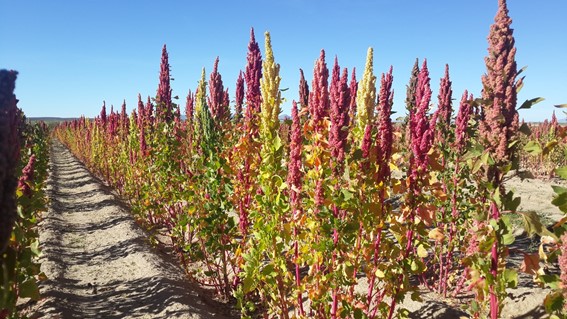
Regenerative agriculture is proposed, which restores soils, eliminates the need to expand the agricultural frontier and deforestation, captures carbon from the atmosphere and is environmentally friendly. As a direct result of the support of the action, SMEs will be able to access certifications in regenerative agriculture or other similar ones that meet the requirements of the European Union market. The biggest problem is that the entire ecosystem where Royal Quinoa is produced is being degraded, as a result of the deterioration of soil life due to unsustainable agricultural practices, and this is affecting the production, employment and income of SMEs.
The main challenge of the proposal is to present alternatives for the transition of quinoa production towards a sustainable agri-food system that can then be implemented on a large scale and affect the entire area. To do this, it is sought that each action generates direct benefits and is independently attractive, guaranteeing its implementation by SMEs and thus creating a synergistic effect throughout the system.
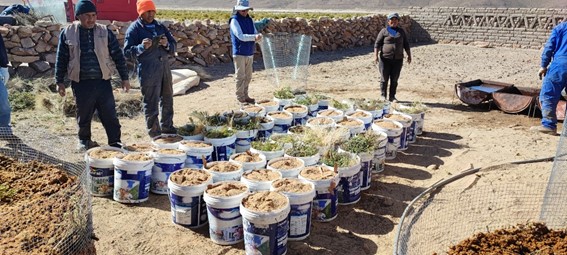
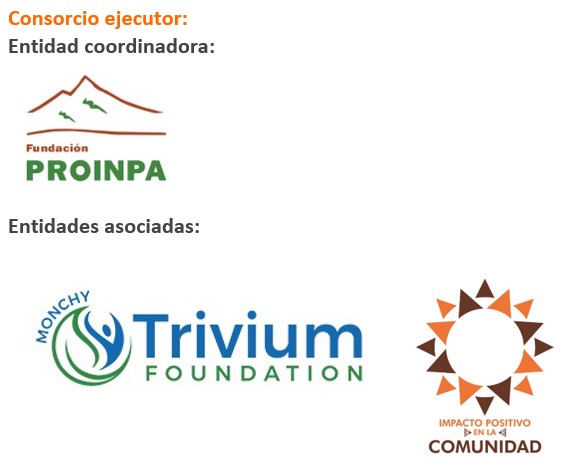
Executed by Al Invest Verde with funding from the European Union

Beneficiaries:
The target groups and final beneficiaries are micro, small and medium-sized enterprises involved in the quinoa business and made up of indigenous communities of small and medium-sized quinoa producers, quinoa processing and exporting plants, importers and customers in destination countries, local consumers, young women and men and their families.
Quinoa producers need to improve their production technology, increase quinoa yields and lower their costs in a sustainable and environmentally friendly way. Their limitations are essentially technological; they are using a form of production that is not in keeping with the times and their yields, now that quinoa prices have dropped, are not sufficient to compete in the market. The action proposes changing the form of quinoa production towards regenerative agriculture that increases yields and brings life back to the soil ecosystem. This should allow the adaptation and use of existing technology for direct sowing and, eventually, mechanized harvesting, lowering production costs and preserving the soil's organic matter. This should generate positive externalities in the environment, reducing carbon emissions and capturing greenhouse gases from the atmosphere, and in income since the final product can be differentiated from traditional quinoa by implementing value-added products.
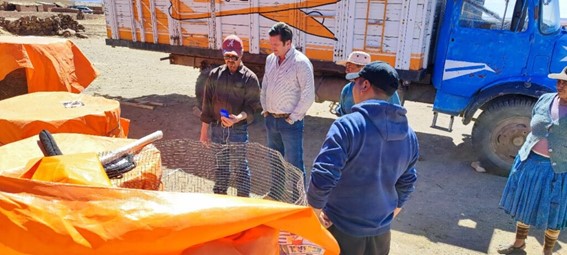
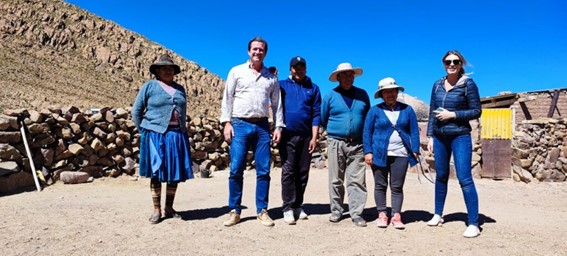
Despite falling prices, processing and exporting plants receive expensive raw materials with many impurities that are difficult to clean and have high costs for disposing of their solid waste. By implementing regenerative agriculture measures and mechanized threshing and harvesting technology, a cleaner product arrives, which is cheaper to process and of better quality. The regenerative agriculture characteristic opens new markets and differentiates the product from the traditional one, making this quinoa more competitive. Processing plants can thus guarantee a market for quinoa. On the other hand, by implementing the concept of circular economy, processing plants can lower the cost of disposing of their solid waste and send it to the field to make compost, which in turn lowers production costs and improves yields.
Importers in destination countries in Europe will have a product that complies with their regulations and comes from sustainable agri-food systems, free of deforestation and expansion of the agricultural frontier, which strengthens human rights and environmental considerations in the operations and corporate governance of companies.
For their part, end consumers, who demand natural, nutritious and environmentally friendly foods, will have a high-quality product, more nutritious and healthier quinoa, which is not the result of the expansion of the agricultural frontier or deforestation and rather regenerates the environment. Finally, young women and men and their families will keep their jobs and will be able to improve their income using more natural and low-cost processes.
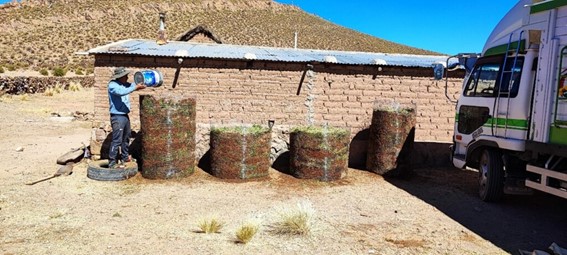
In summary:
Region/Cities of implementation | Duration | Total budget | Number of beneficiary SMEs |
Southern Altiplano of Bolivia | 24 months (from May 2024 to April 2026) | €375000 | 400 |
Contact this project:
- Jose Santa Cruz
Agricultural Research and Development
jsantacruz@jisabolivia.com
- Javier Delgado
Positive Impact on the Community
jdelgado@impacto-positivo.org
- Rolando Oros
PROINPA Foundation
r.oros@proinpa.org

